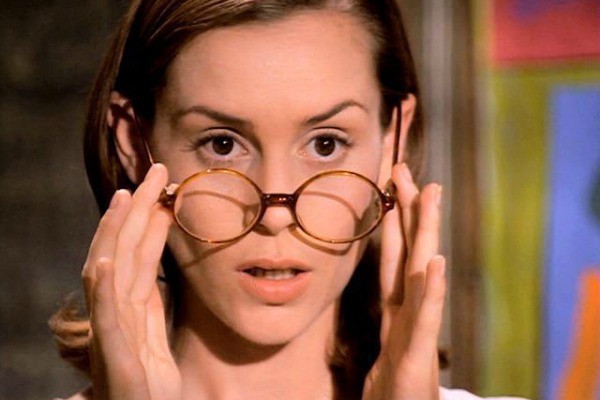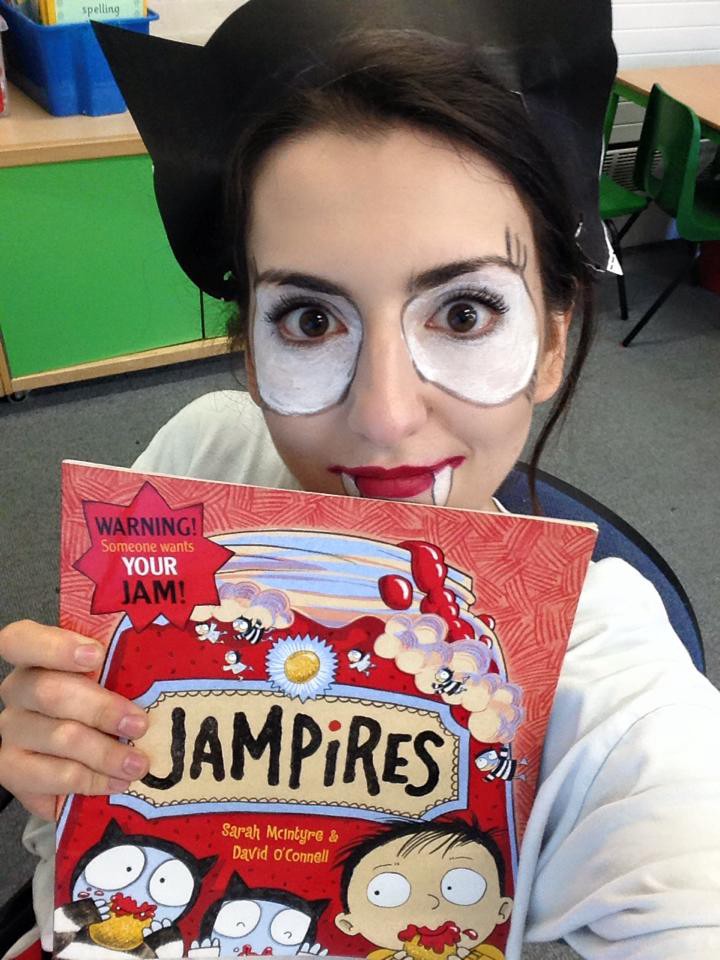"I'm big and you're small, and there's nothing you can do about it."
Talking kindness with Miss Sophie Klimt, teacher of the first grade.

When you imagine a young woman who teaches little kids, what do you see? Do you see an intellectual colossus, or do you see Miss Honey from Matilda? I see Miss Honey from Matilda. She of the “lovely pale oval madonna face,” the face out of which shone “some curious warmth that was almost tangible.”
Primary school teachers, the stereotype goes, are either Trunchbull nasties or longhaired, female believers in kindness. Nice, sweet, kind; not really adult. Sophie Klimt, who teaches year 2 — the British equivalent of first grade — neither voids nor endorses this model. She’s wanted to teach since she was a kid. She used to “teach” her little sister when they were small: “I would set up a little classroom in my bedroom and try to drum history dates into her head.”
Primary school teachers, the stereotype goes, are either Trunchbull nasties or longhaired, female believers in kindness.
When Klimt was seven, something formatively nasty happened to her at school:
My teacher made me stand up in front of the whole class and spitefully asked me to tell the time, despite knowing I couldn’t. “What’s the time, Sophie? What’s the time?” I thought, I will never embarrass anyone like that.
In retrospect, however, Klimt sees that she totally refused to practice time-telling or pay attention in class. What was the teacher supposed to do? Give up? “I’ve been telling this anecdote for nearly my whole life,” she said, “and I’ve only just realized I’m the villain of the piece.”

Nobody can think about primary school teachers without recollecting their own childhood. This struck me as unfair, because, broadly speaking, it reduces the primary school teacher to something like a sense-memory, and that diminishes them as workers. A teacher of college is an enforcer. We may inspire, but only insofar as it helps a student get their money’s worth. Discipline is key. My job is to ram some knowledge through my students’ ears so that they can get a good degree, not to care about the way that they feel.
By contrast, we see the teacher of tiny tots as a kind of surrogate mother, nurturing and coaxing and empathizing with our young. They rear our brood while we get on with our grown up, masculine-coded jobs. The divide between those who work with children and those who don’t gives rise to sexist assumptions about those workers. That divide has only been worsened by the daycare abuse hysteria that winnowed men out of the primary teaching workforce in the 1980s.
But the more I spoke to Klimt about her work, the more I realized that I wanted her to reject the doctrine of “professional kindness” for political reasons around gender, while she wanted to keep it for political reasons around class.

Klimt is highly educated: she has an undergraduate degree in English from Oxford, and she trained to be a teacher at Cambridge. She’s going to start an MA in Children’s Literature at Goldsmiths in the fall. “Sometimes people are surprised that I don’t want to work in a private school,” Klimt told me, “given that I benefited greatly from going to one.”

Klimt feels that she was lucky to attend a private school, but also believes that one’s early education is entirely down to luck. There’s “luck if you are born to parents with enough money to pay fees” for private school, and luck if your parents have “the time or inclination (or skills themselves!) to read to you, practise counting with you.” It’s only luck that gives you parents who “even — and this is the most important one — talk to you and engage with you.”
A private school will have more luxurious resources, sure, but Klimt believes that “the teaching is often no better in a private school than a state school.” She belongs in the state education sector, she says, along with everybody else: teachers and children alike.
“I try not to get crazy about it,” Klimt told me, “but I think for the time [my students] are with me they know I care about them, and this makes for a more productive working relationship.” The kindness doctrine is a practical one, and a political one for teachers in the state sector. One’s early life is a crapshoot. A teacher may as well try to even things out as far as she can. Being a good teacher of children means being fair in an unfair world, performing kindness in an unkind one. A good teacher has to be better than a bad system.

During her teacher training, Klimt would take endless notes about other people’s classrooms, “copying down word-for-word their teaching points and describing in lavish detail their displays. . . An enormous beanstalk, with each leaf a different adjective to describe Jack.” She became, as all teachers do, “a Frankensteinian hodgepodge of different teachers” she had seen.
Every teacher is like this. We are all composites of those who have taught us, or colleagues whom we admire. Most importantly, perhaps, we are a composite of the ways that we try to become the person whom our students imagine us to be. It seemed right and true, to me, when Klimt described how teaching “anchors” her:
It gives my weeks, months, years a shape. It makes me strive to be better, kinder, cleverer, more joyous and less selfish. The person I want to be always is the person the children in my class see (unless they’ve ticked me off): responsible, compassionate, giver of tissues, and the brimming font of all knowledge.
That’s exactly what it’s like for me, too, except for giving tissues. I suppose I lend students pens sometimes.
We are all composites of those who have taught us, or colleagues whom we admire.
The vision your students have of you becomes an identity, for any teacher — good or bad. A child’s vision will necessarily be incomplete, and it may even feel limiting to those of us who do not wish to be one-dimensional kindness factories of the kind we read about in children’s books. But we see Miss Honey through Matilda’s eyes, and Matilda is a little kid, even though she’s very smart. Teaching little kids means living up to a partial version of your best self, professionally, every single working day of your life. If you can do it with a “curious warmth,” all the better.
Josephine Livingstone is a writer and academic in New York.
